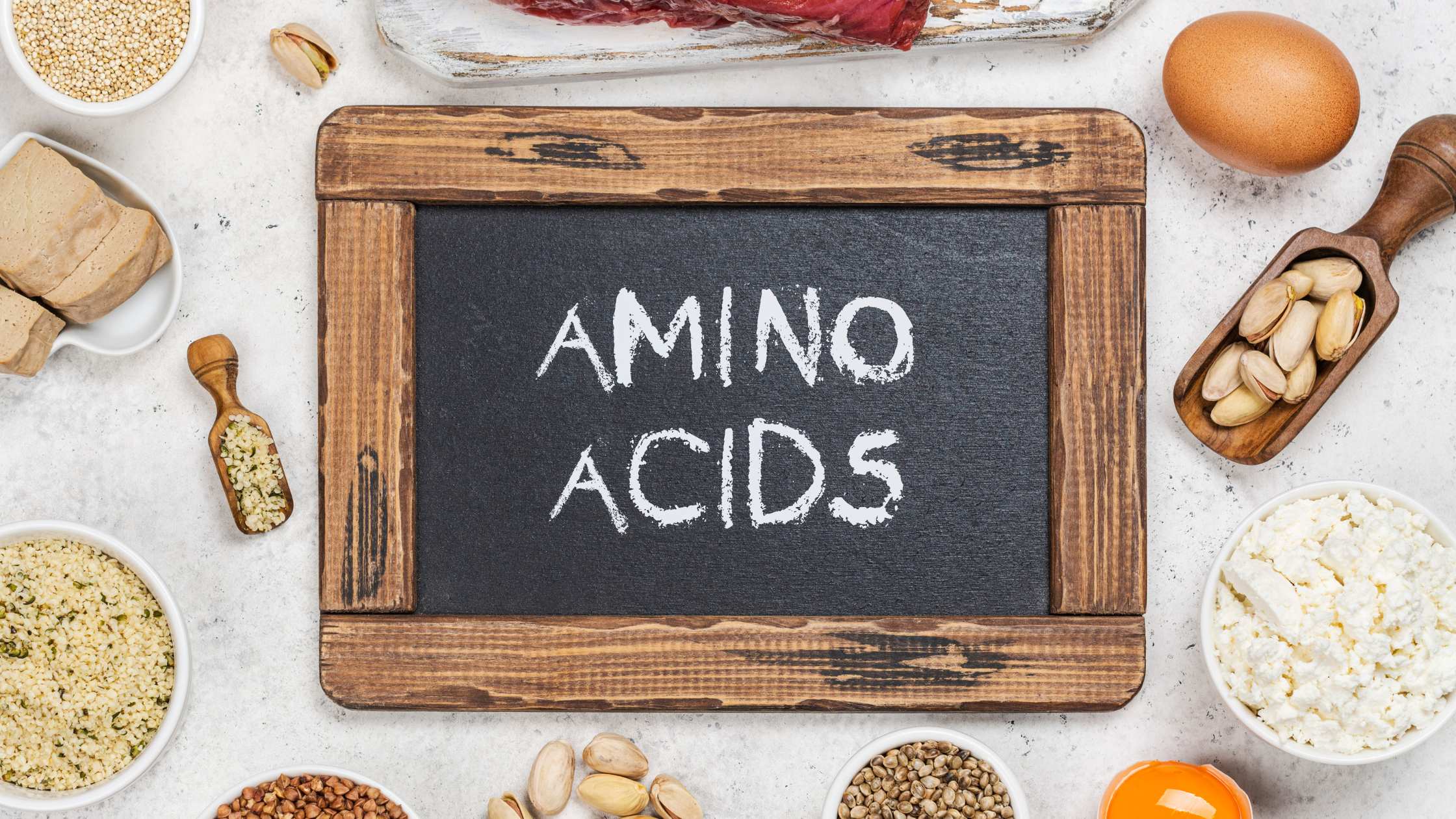
Amino Acids 101: What You Need to Know for Optimal Health
Amino acids are organic compounds that serve as the building blocks of proteins, which are essential for the structure and function of all living cells. They play a crucial role in various biological processes, including metabolism, immune function, and hormone production. Understanding amino acids, their roles, and how they influence our health is vital for anyone interested in nutrition, fitness, or overall well-being.
What Are Amino Acids?
Amino acids are molecules that contain both an amine group (-NH2) and a carboxylic acid group (-COOH), along with a specific side chain for each amino acid. This structure allows them to link together in long chains to form proteins. There are 20 common amino acids, classified into three categories:
- Essential amino acids – These cannot be synthesized by the body and must be obtained through diet.
- Non-essential amino acids – These can be made by the body, thus do not need to be ingested through food.
- Conditional amino acids – These are usually non-essential, but may become essential in times of stress or illness.
The 20 Common Amino Acids
The 20 amino acids can be categorized into essential, non-essential, and conditional amino acids. Here is a brief overview:
Essential Amino Acids
- Histidine
- Isoleucine
- Leucine
- Lysine
- Methionine
- Phenylalanine
- Threonine
- Tryptophan
- Valine
Non-essential Amino Acids
- Alanine
- Arginine
- Aspartic acid
- Glutamic acid
- Serine
Conditional Amino Acids
- Asparagine
- Cysteine
- Glutamine
- Tyrosine
- Proline
- Glycine
Functions of Amino Acids in the Body
Amino acids have several important functions in the body, including:
1. Protein Synthesis
The primary function of amino acids is to serve as the building blocks for proteins. Proteins are essential for the growth, development, and maintenance of tissues in the body, including muscles, organs, skin, and hair.
2. Enzyme Production
Amino acids are crucial for the synthesis of enzymes, which are proteins that catalyze biochemical reactions in the body. Without enzymes, these reactions would occur too slowly to sustain life.
3. Hormone Regulation
Many hormones, such as insulin and glucagon, are proteins that are derived from amino acids. These hormones regulate various physiological processes, including metabolism and growth.
4. Immune Function
Amino acids play a vital role in the immune system by helping to produce antibodies. These proteins help the body fight infections and diseases.
5. Energy Production
Amino acids can be converted into glucose and used as a source of energy when carbohydrate intake is low. This process is known as gluconeogenesis.
6. Neurotransmitter Synthesis
Several amino acids serve as precursors for neurotransmitters, which are chemicals that transmit signals in the brain and throughout the nervous system. For instance, tryptophan is necessary for the production of serotonin, a neurotransmitter that regulates mood and sleep.
Sources of Amino Acids
Amino acids can be obtained from a variety of dietary sources, both animal and plant-based. Some of the best sources include:
Animal Sources
- Meat (beef, chicken, pork)
- Fish
- Dairy products (milk, cheese, yogurt)
- Eggs
Plant Sources
- Legumes (beans, lentils, chickpeas)
- Nuts and seeds
- Quinoa
- Tofu and tempeh
- Whole grains (brown rice, oats)
To ensure an adequate intake of all essential amino acids, it is important to include a variety of protein sources in the diet, particularly for individuals following vegetarian or vegan lifestyles.
Supplementing with Amino Acids
Amino acid supplements are popular among athletes and fitness enthusiasts for their potential benefits, which include:
1. Muscle Growth and Recovery
Branched-chain amino acids (BCAAs) – leucine, isoleucine, and valine – are often used to enhance muscle protein synthesis and reduce exercise-induced muscle soreness.
2. Improved Athletic Performance
Amino acid supplementation may help improve endurance, reduce fatigue, and enhance overall athletic performance.
3. Weight Management
Amino acids can help regulate metabolism and promote the maintenance of lean muscle mass during weight loss.
4. Enhanced Energy Levels
By providing a readily available source of energy, certain amino acids may help improve overall energy levels and reduce fatigue during exercise.
Conclusion
Amino acids are fundamental for life, playing crucial roles in protein synthesis, metabolism, immune function, and more. Whether through dietary sources or supplements, ensuring adequate intake of these vital compounds is essential for overall health and well-being. Whether you are an athlete, looking to enhance your performance, or an individual wanting to maintain a balanced diet, understanding amino acids can help you make informed nutritional choices.
FAQs about Amino Acids
1. What are the essential amino acids?
The essential amino acids are histidine, isoleucine, leucine, lysine, methionine, phenylalanine, threonine, tryptophan, and valine. These must be obtained through diet as the body cannot produce them.
2. Can I get enough amino acids from a plant-based diet?
Yes, it is possible to obtain all essential amino acids from a plant-based diet by consuming a variety of protein sources such as legumes, nuts, seeds, and whole grains.
3. Are amino acid supplements safe?
Amino acid supplements are generally safe when taken as directed. However, it is essential to consult with a healthcare professional before starting any new supplement regimen.
4. What are the benefits of taking BCAA supplements?
BCAA supplements may help enhance muscle recovery, reduce soreness, improve exercise performance, and promote muscle growth.
5. Where can I find more information on amino acids?
For more details on how amino acids relate to fitness and nutrition, check out these useful resources: USA Steroids with Fast Shipping and Ok.ru Profile.
Amino acids are organic compounds that serve as the building blocks of proteins, an essential component of all living organisms. There are 20 standard amino acids that combine in various sequences to form proteins, which play crucial roles in nearly every biological process. Each amino acid consists of a central carbon atom bonded to an amino group (–NH2), a carboxyl group (–COOH), a hydrogen atom, and a variable side chain or R group that determines the specific properties and functions of the amino acid. The sequence and composition of these amino acids directly influence the structure and function of proteins, highlighting their significance in biological systems.
Among the 20 standard amino acids, nine are classified as essential amino acids, meaning that they cannot be synthesized by the body and must be obtained through dietary sources. These essential amino acids include leucine, isoleucine, valine, lysine, methionine, phenylalanine, threonine, tryptophan, and histidine. The remaining eleven amino acids are termed non-essential, as the body can produce them from other compounds. A balanced intake of these amino acids is crucial for overall health, as they contribute to muscle repair, immune function, hormone production, and various metabolic processes.
Amino acids are involved in numerous physiological functions beyond protein synthesis. They serve as precursors for various bioactive molecules, including neurotransmitters, hormones, and metabolic intermediates. For example, the amino acid tryptophan is required for the synthesis of serotonin, a neurotransmitter that plays a key role in regulating mood, sleep, and appetite. Similarly, tyrosine, another amino acid, is a precursor for catecholamines like dopamine, epinephrine, and norepinephrine, which are critical for the body’s response to stress. The diverse roles of amino acids in biological processes underline their importance in nutrition and health.
Moreover, amino acids are critical in metabolic regulation and maintaining nitrogen balance in the body. They play essential roles in the synthesis of nucleotides and other important molecules required for cellular function and growth. The body employs strategies to maintain a balance of amino acids through processes like deamination, where amino groups are removed from amino acids, and transamination, where amino groups are transferred between different molecules. These processes ensure that amino acids are adequately utilized and recycled within the body, supporting various physiological functions.
In summary, amino acids are fundamental to life, serving as the building blocks of proteins and playing vital roles in numerous biological processes. Their classification into essential and non-essential categories reflects their diverse functions and the need for adequate dietary intake. From aiding in muscle repair and hormone production to contributing to metabolic regulation, amino acids are indispensable for health and well-being. Understanding their functions and sources can help individuals make informed nutritional choices and support their overall health.







